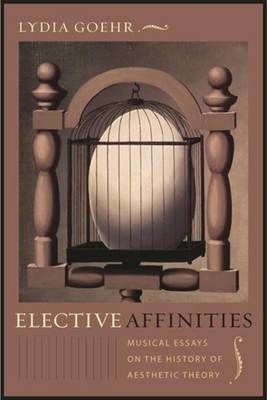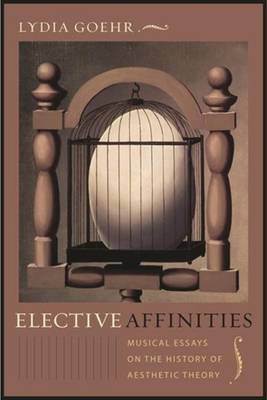
- Afhalen na 1 uur in een winkel met voorraad
- Gratis thuislevering in België vanaf € 30
- Ruim aanbod met 7 miljoen producten
- Afhalen na 1 uur in een winkel met voorraad
- Gratis thuislevering in België vanaf € 30
- Ruim aanbod met 7 miljoen producten
Zoeken
€ 71,45
+ 142 punten
Uitvoering
Omschrijving
As illustrated in Goethe's famous novel of the same name, elective affinities are powerful relationships that crystallize under changing conditions. In this new book, Lydia Goehr focuses on the history of elective affinities between philosophy and music from German classicism, romanticism, and idealism to the modernist aesthetic theory of Theodor W. Adorno and Arthur C. Danto. Aesthetic theory, she argues, depends on a dynamic philosophy of history centered on tendencies, yearnings, needs, and potentialities. With this in mind, she recasts the theses of Adorno and Danto regarding the death or end of philosophy, art, music, and human experience as arguments for continuation and survival. Elective Affinities tracks the migration of aesthetic and critical theory from Germany to the United States following the catastrophic period of the twentieth century marked by the Second World War.
Specificaties
Betrokkenen
- Auteur(s):
- Uitgeverij:
Inhoud
- Aantal bladzijden:
- 408
- Taal:
- Engels
- Reeks:
Eigenschappen
- Productcode (EAN):
- 9780231144810
- Verschijningsdatum:
- 13/09/2011
- Uitvoering:
- Paperback
- Formaat:
- Trade paperback (VS)
- Afmetingen:
- 150 mm x 226 mm
- Gewicht:
- 544 g

Alleen bij Standaard Boekhandel
+ 142 punten op je klantenkaart van Standaard Boekhandel
Beoordelingen
We publiceren alleen reviews die voldoen aan de voorwaarden voor reviews. Bekijk onze voorwaarden voor reviews.











